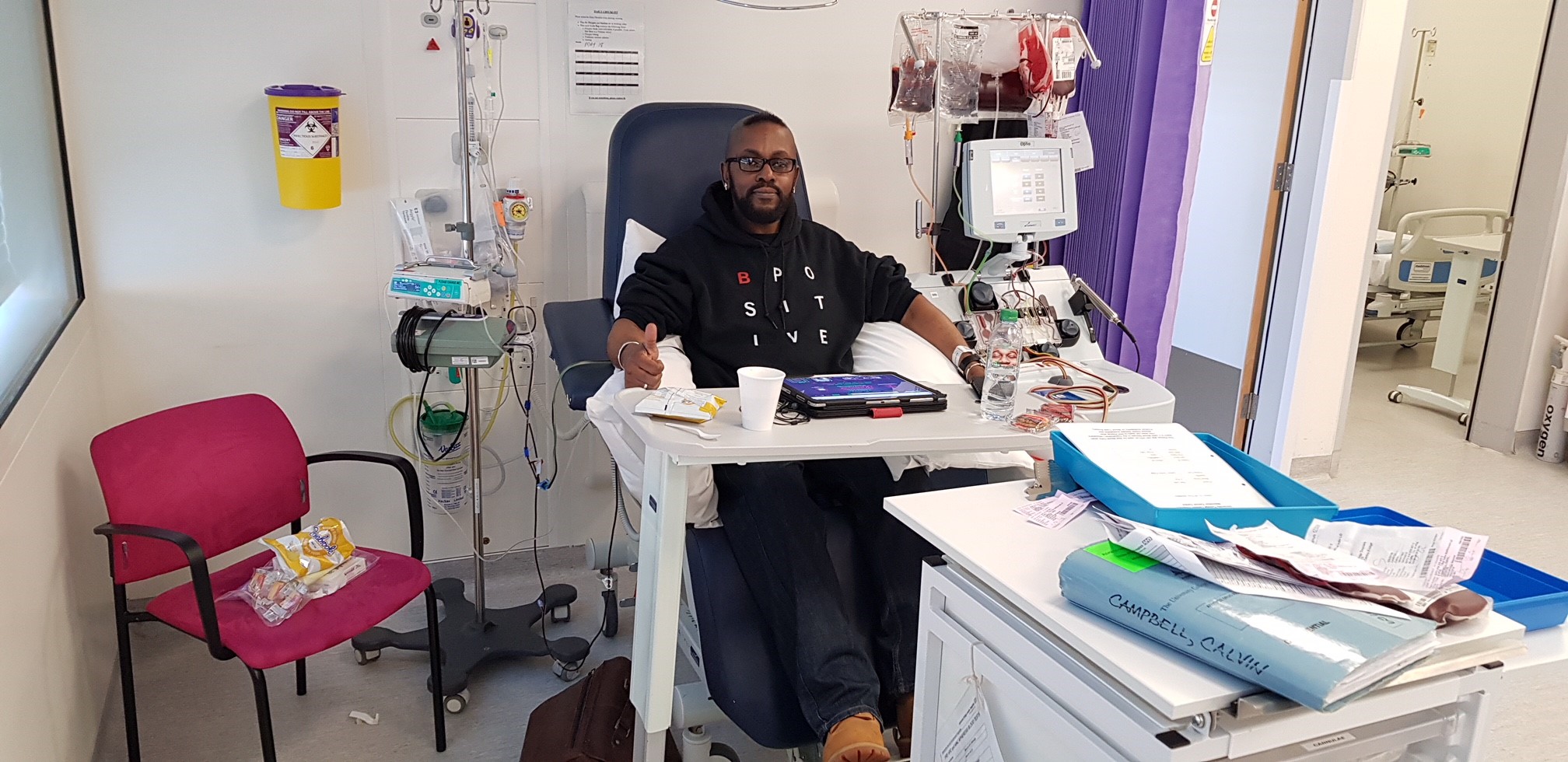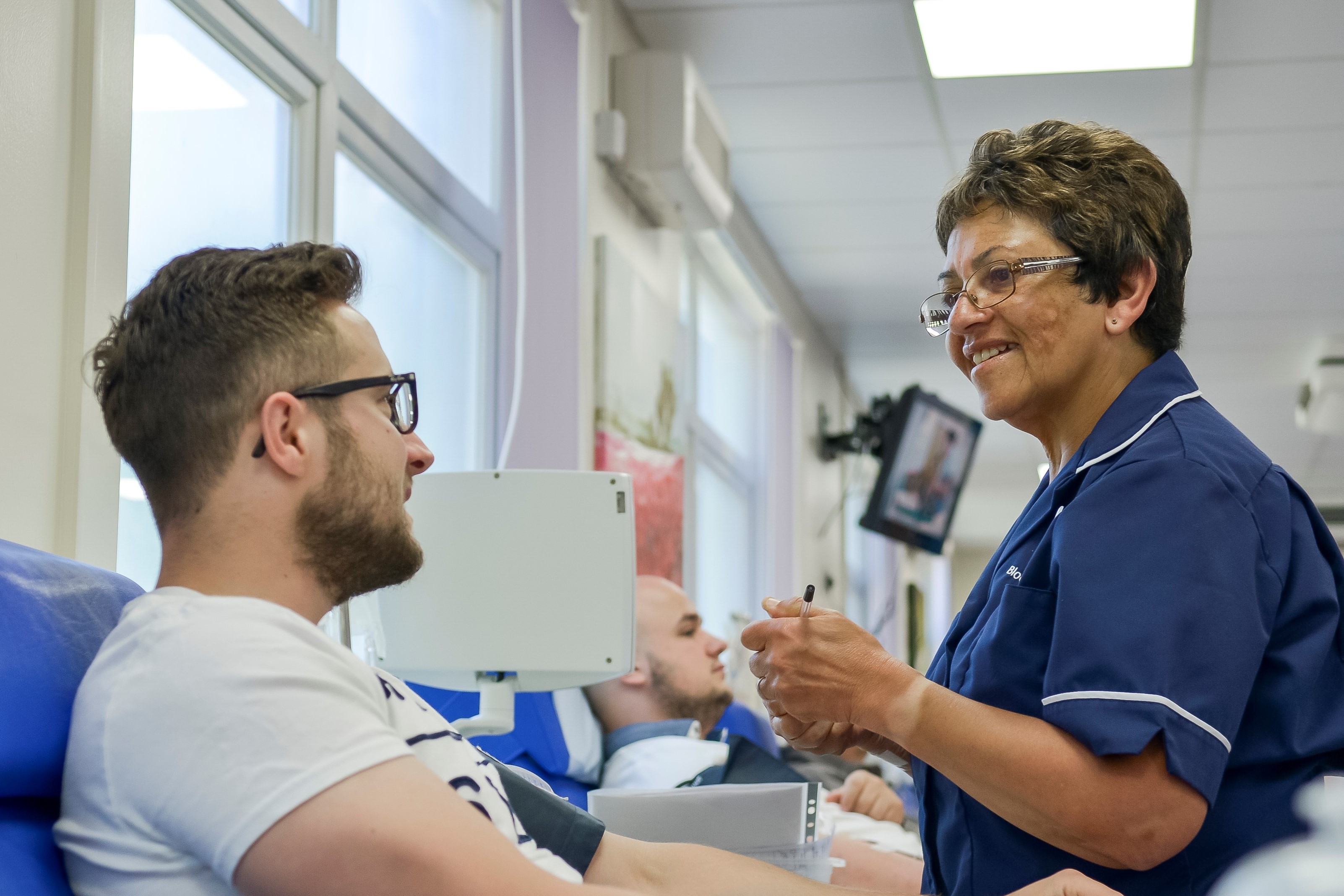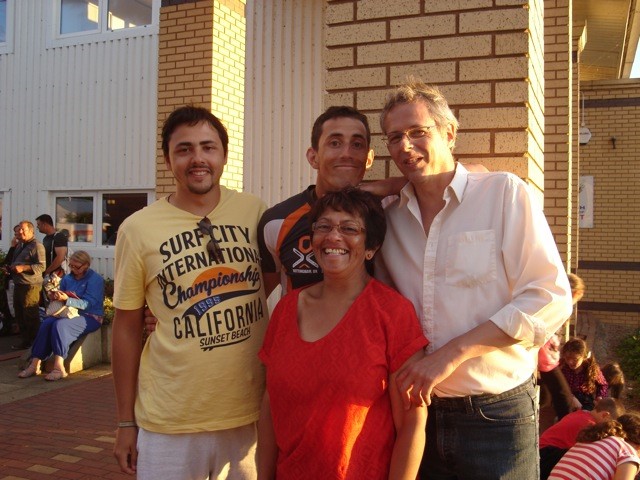Everyday he-Ro-es
Why Ro blood donors are in demand
You may have heard the term ‘Ro’ being bandied about by us in recent years. ‘Ro’ refers to a very important subtype that just 2% of our blood donors have.
But demand for Ro blood is rising fast – increasing by 80% over the last three years.
To make sure that we can match supply with demand, we are turning up the heat with Ro donor recruitment, and for that we need your help too.
Appeal for new black blood donors
Ro blood is vital for treating patients with sickle cell disease. This inherited blood condition is on the rise in the UK, as the ethnic diversity of the population increases.
Sickle cell disease disproportionately affects black people, and patients affected need regular blood transfusions, ideally with blood that is very closely matched to their own, which is most likely to be found within the same ethnic group.
Around 40% of the black population will have this blood group, and so we are trying to recruit as many black blood donors as possible.
The need is real
Calvin Campbell, 55, from north London, was diagnosed with sickle cell disease at just six months old. He receives 10 units of blood every month through an exchange, where his blood is removed and replaced with donated blood.
Calvin has lived with varying degrees of chronic pain all his life and is never pain-free. Before joining the exchange programme, he spent long periods in hospital, including a two-year stay for complications that included disabling ulcers on his legs and feet.
The blood exchanges Calvin receives at University College London Hospital help to prevent or relieve his symptoms so he can lead a more normal life.

Calvin, who sings in the B Positive Choir to promote blood donation, says, “More and more people are living with sickle cell and we depend on blood to give us our lives back. But there is not enough of the right blood to go round.
“I have had transfusions and exchanges postponed because of a lack of well-matched blood, and I have seen the impact on others of receiving blood that isn’t the ideal match.
“I don’t think enough black people understand the need to give blood or realise that people like me depend on donors of the same ethnic background. When people understand, they are willing to give.”
Running in the family
Ro blood is not confined to the black population, though: we are regularly contacted by Ro donors of other ethnicities who are surprised that they have this very special blood subtype!
Helen Day, one of our very own donor nurses at Cambridge Donor Centre, is herself an Ro blood donor.

Helen says, “Even though I have worked for NHSBT for 20 years, I had not heard about the Ro subtype until I received a letter about three years ago informing me of my Ro subtype status.
“Naturally I was interested to find out more. Knowing that my blood helps patients with sickle cell disease is really important to me and I make sure I donate as often as I am allowed to.”
We often ask Ro donors to encourage family members to consider giving blood too, as the chance of them sharing this blood subtype is far greater than for of an average person.
Indeed, Helen’s son, Tom (pictured in the centre with his family), also has the Ro subtype and says he is all the more keen to donate regularly.
He says, “Some of my favourite programmes are 24 Hours in A&E and An Hour to Save Your Life.
“In them you can see when a patient is receiving a blood transfusion it’s not just one pint it can be many.
“It emphasises how important it is that stock levels of blood are kept high. It makes me feel part of a bigger picture, donating blood. And since finding out I am Ro I am more committed to donating regularly.”
